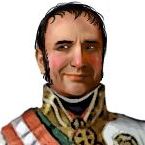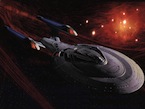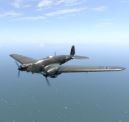Nikel
Posts: 355
Joined: 3/24/2009
Status: offline

|
quote:
ORIGINAL: Remington700
For me WPP is a major success! Although the game may not be for everyone. And I play differently than the majority, using hotseat without a human opponent. So please know I do not speak for the group.
I think the game does hit the mark between what I would call "complex/time consuming" and "blow and go". I have spent hours playing Ageod releases and TOAW. I consider all to be much the same in complexity, while being different at the same time. It depends upon how deep you get into it. There are things I miss from those games such as the treatment of leaders. And the age old argument of should a river be in the middle of a hex or on the border.
It has been very hard to find the middle ground between WitP-AE and less detailed Pacific Theater of Operations games. WPP hits the middle very well and as such, works well with my work/family schedule. I know we lost some dedicated PTO players early after the release due to the ease of invading India and Australia. It just does not sit well with those that want historical relevance, including myself. I believe this has been adjusted, however I cannot say for sure as I have house ruled away from it since the start.
The War Plan community seems to be mostly focused in the ETO which may be driven more by interest in history than in just game play. However, I think in general, any PTO games or simulations will have less dynamic outcomes than what happens on the other side of the world. Unless player skill level is uneven, generally you start with Japanese dominance, have a period of equality and then Allied dominance. Dominance swings quickly with a few key Naval battles. Compared to the ETO where dominance is gained slower, but more steadily though large scale land combat.
For me the success in WPP lies in the little skirmishes that set up the big naval confrontations. Once the invasion of West India is taken out of the equation, as the allies you hold on by doing little things like night supply runs to key bases. And use air power to offset the naval imbalance. All to just survive. Playing Japan, you have to hit hard and fast, capturing all that you can before the momentum swings. And do everything possible to cut supply to India to keep the fight in Burma. However overextension can be a disaster so you have to know when to dig in. There is a lot of thought that can go into this game. And while the path to an Allied victory may differ from history, it does seem reasonable to me. I follow either the MacArthur or Nimitz plan based on the enemies defense. A Japanese win by points does reasonably replicate a conditional peace; although the historical likelihood is still a great debate.
So to finally answer your question, I think more are playing WPP than who post on the forum - which is the norm for most successful games. Since WPP has not yet been released to Steam, sales must still be strong. And if this is not the case, I cannot understand why. WWP is an outstanding game in my opinion.
Thanks for your detailed answer.
The leaders is one of the factors, you will see Nimitz and Yamamoto in the splash screen, but never more in the game.
So historic simulation is THE FACTOR, in my opinion. Not only the internal game mechanics have to work and be as bug-free as possible, there is something more, just my feelings.
The middle place should be the most common, so why so much activity in WitP-AE, a monster game, after so many years? Because the game is a success, and I doubt it is becase the PTO gamers are specially grognards.
The same we can say with Ageod, the most successful were the ACW games, and so is reflected in the forum activity. I do not think good games generate less forum activity because the players are playing. When you enjoy a game, you post in the forum bugs to improve it, post historical comments or doubts and search for other players, even create AARs (a badly remunerated job  ). And this in turn generates even more. ). And this in turn generates even more.
< Message edited by Nikel -- 12/11/2021 2:29:55 PM >
|
 Printable Version
Printable Version
 , and now even new patches by the original team members!?
, and now even new patches by the original team members!? 









 ). And this in turn generates even more.
). And this in turn generates even more. 








 New Messages
New Messages No New Messages
No New Messages Hot Topic w/ New Messages
Hot Topic w/ New Messages Hot Topic w/o New Messages
Hot Topic w/o New Messages Locked w/ New Messages
Locked w/ New Messages Locked w/o New Messages
Locked w/o New Messages Post New Thread
Post New Thread